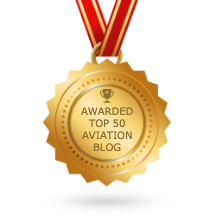Why Don’t Rocket Launchers Pay Airway Trust Fund Taxes?
By Scott Spangler on April 15th, 2024 Two stories reported near April 1 suggested a cruel prank. Just before 4/1 came news that the FY 2025 budget proposed to raise the per-gallon tax on business jet fuel nearly 400%, to $1.06 per gallon.
Two stories reported near April 1 suggested a cruel prank. Just before 4/1 came news that the FY 2025 budget proposed to raise the per-gallon tax on business jet fuel nearly 400%, to $1.06 per gallon.
As a reminder, aviation fuel taxes are how the government funds the Airport and Airway Trust Fund that pays for airport improvements and some FAA operations such as air traffic control.
Shortly after 4/1, the New York Times revealed America’s commercial space launch operators contribute nothing to the trust fund even though each of the hundreds of rockets they have launched over the years require substantial FAA and ATC involvement.
Rocket launchers like SpaceX are for-profit companies just like the airlines, and they use the national airspace system just like each of the aviation communities that comprise general aviation—so why do they get a free ride?
Perhaps somewhere in the FY25 budget proposal that introduces the five-year fuel tax increase on bizjets will be some sort of equitable tax on rocket launches. And let’s hope that there’s another increase on the taxes paid by commercial airlines, who have an aviation tax deal second only to the rocket launchers.
As the aviation fuel taxes stand now, for all aspects of general aviation, piston flyers pay 0.193 cents per gallon of avgas and kerosene burners pay 0.218 cents for jet fuel. On March 2012, the government added a 14.1 cent per gallon surcharge for fuel burned by aircraft in fractional ownership programs, the majority of which are bizjets.
Regardless of fuel type, commercial aviation operators pay just 0.043 cents per gallon to the Airport and Airway Trust Fund. They also pay a ticket tax, but they certainly build this 7.5% fee into the price passengers pay ride their tubular cattle cars.
And I’m sure they do the same for the per passenger segment tax, defined as the flight between a takeoff and its next landing. Introduced on New Year’s Day 2002, it is indexed with the Consumer Price Index and is $5 in 2024.
By the way, the airline ticket tax does not include all off the fees the airlines so love for baggage, rebooking, legroom, and what have you. For the commercial operator, these fees are pure profit.
So here we are. The rocket launchers are getting free use of an understaffed, overworked air traffic control workforce that must rework and manage the traffic so their missiles can safely puncture the national airspace. And the airlines, which have been reporting substantial profits can add to their bottom lines with untaxed fees passengers pay when the rocket launchers disrupt their travels. And we wonder why our aviation infrastructure is failing us. – Scott Spangler, Editor
Related Posts:







April 16th, 2024 at 5:21 pm
Very good point. Of course NASA used to do all of this and they still do for some.
But you’re right, the rocket guys should pay up. What about commercial drone operators realizing they are in class D airspace. But when I worked for Boeing doing sUAV operations I had to coordinate with local ATC for approvals and also communicate with them during operations.
No fees?
Don’t forget, commercial and private jet/turboprop operators pay landing fees based on weight.